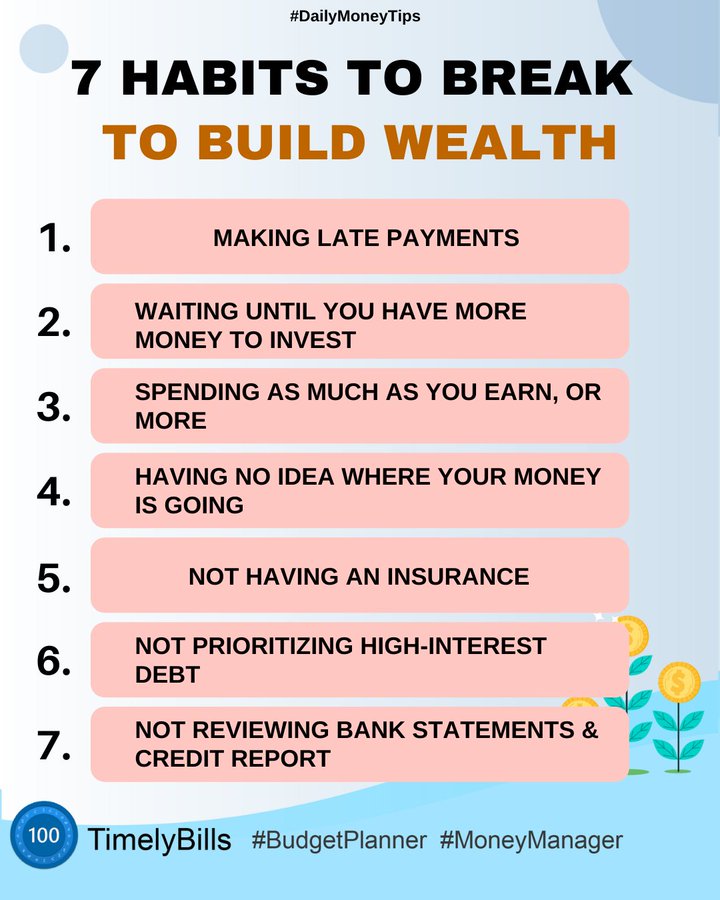Wealth creation is a journey that begins with a single step. Many believe that financial independence is reserved for the lucky few, but anyone can achieve it with the right approach. The key lies in understanding and consistently applying the steps to financial independence.
This article will guide you through creating a wealth-builder plan that will set you on the path from zero to wealth.
Understanding Wealth Creation
Wealth creation is more than just earning money; it’s about building and preserving financial assets over time. It involves making smart financial decisions that enable your wealth to grow. Whether you’re starting with nothing or looking to optimize your current financial situation, understanding the principles of wealth creation is essential.
- What Is Wealth Creation?
At its core, wealth creation involves accumulating assets that generate income or appreciation. This can include investments like stocks, real estate, or even starting a business. The ultimate goal is to have your money work for you, creating a sustainable and growing source of income.
- The Importance of Financial Literacy
Financial literacy is the foundation of wealth creation. Without a solid understanding of financial principles, it’s easy to make mistakes that can hinder your progress. By educating yourself on topics like budgeting, investing, and saving, you empower yourself to make informed decisions that contribute to your financial independence.
Mindset Matters: Developing a Wealth-Building Attitude
The journey to wealth begins in the mind. Developing a positive, growth-oriented mindset is crucial for achieving financial success. This mindset shift involves believing that you have the power to change your financial situation and taking responsibility for your financial future.
- The Power of Positive Thinking
Positive thinking isn’t just about being optimistic; it’s about adopting a mindset that focuses on possibilities rather than limitations. By visualizing your financial goals and believing in your ability to achieve them, you create a mental environment that supports your wealth-building efforts.
- Overcoming Limiting Beliefs
Many people are held back by limiting beliefs about money, such as the idea that wealth is unattainable or that it’s wrong to desire financial success. Overcoming these beliefs is essential for unlocking your potential as a wealth builder. Replace these thoughts with empowering beliefs that encourage financial growth.
Setting Clear Financial Goals
To build wealth, you need a clear roadmap. Setting specific, measurable, achievable, relevant, and time-bound (SMART) financial goals provide direction and motivation. These goals will serve as milestones on your journey to financial independence.
- Short-Term vs. Long-Term Goals
Short-term financial goals might include saving for an emergency fund or paying off a specific debt, while long-term goals could involve buying a home or retiring comfortably. Both types of goals are important, and they should align with your overall wealth-builder plan.
- Tracking Your Progress
Regularly reviewing your financial goals helps you stay on track and make adjustments as needed. Use tools like budgeting apps or financial planners to monitor your progress and ensure you’re moving in the right direction.
Budgeting: The Foundation of Wealth
A well-crafted budget is the cornerstone of any wealth-building plan. It allows you to manage your income and expenses effectively, ensuring that you live within your means and allocate money towards your financial goals.
- Creating a Realistic Budget
Start by listing your income sources and fixed expenses, such as rent or mortgage payments. Then, allocate funds for variable expenses like groceries and entertainment. Finally, set aside money for savings and investments. A realistic budget reflects your actual spending habits while prioritizing your financial goals.
- Sticking to Your Budget
Creating a budget is one thing, but sticking to it is another. Discipline is key to maintaining your budget. Use tools like budgeting apps or spreadsheets to track your expenses and identify areas where you can cut back.
Saving Strategies: Building Your Financial Base
Saving money is the first step towards building wealth. Without savings, you’ll have nothing to invest and no cushion for financial emergencies. Establishing a robust savings strategy is essential for wealth creation.
- The Importance of an Emergency Fund
An emergency fund is a savings account dedicated to unexpected expenses, such as medical bills or car repairs. Aim to save three to six months’ worth of living expenses in your emergency fund. This safety net ensures that you won’t have to dip into your investments or go into debt when the unexpected happens.
- Automating Your Savings
One of the most effective ways to save consistently is to automate your savings. Set up automatic transfers from your checking account to your savings account each month. This ensures that you pay yourself first and build your savings without thinking about it.
Investing Wisely: Growing Your Wealth
Saving money alone won’t make you wealthy. To build substantial wealth, you need to invest your money so it can grow over time. Investing allows your money to work for you, generating returns that compound over the years.
- Understanding Investment Options
There are various investment options available, each with its own risk and return profile. Common investments include stocks, bonds, real estate, and mutual funds. Diversifying your investments across different asset classes can help manage risk and increase your chances of achieving your financial goals.
- The Power of Compound Interest
Compound interest is often called the eighth wonder of the world. It’s the process by which your investment earnings are reinvested to generate additional earnings over time. The earlier you start investing, the more time your money has to grow through the power of compounding.
Multiple Streams of Income: Diversifying Earnings
Relying on a single source of income can be risky. To build and protect your wealth, it’s wise to create multiple streams of income. This diversification not only provides financial security but also accelerates your wealth-building efforts.
- Exploring Side Hustles
A side hustle is a great way to generate additional income outside of your primary job. Whether it’s freelancing, starting a small business, or investing in rental properties, side hustles can provide a valuable income stream that boosts your wealth.
- Passive Income Opportunities
Passive income is money earned with little to no effort on your part, such as rental income or dividends from investments. Building passive income streams is a key strategy for achieving financial independence, as it allows you to earn money even when you’re not actively working.
Wealth Builder Plan
Creating a personalized wealth builder plan is essential for anyone serious about achieving financial independence. This plan will serve as your blueprint, guiding you through the steps needed to build and sustain your wealth.
- Assessing Your Current Financial Situation
Start by evaluating your current financial situation, including your income, expenses, debts, and assets. Understanding where you stand financially will help you identify areas for improvement and set realistic goals.
- Developing a Strategy
Based on your financial assessment, develop a strategy that aligns with your goals. This strategy should include budgeting, saving, investing, and creating multiple streams of income. Be sure to adjust your plan as your financial situation changes.
Managing Debt: Turning Liabilities into Assets
Debt is often seen as a barrier to wealth, but when managed properly, it can be a tool for building wealth. The key is to differentiate between good debt, which can help you acquire assets, and bad debt, which drains your finances.
- Paying Off High-Interest Debt
High-interest debt, such as credit card debt, can quickly spiral out of control if not managed properly. Focus on paying off these debts first to free up more money for saving and investing.
- Leveraging Good Debt
Good debt, such as a mortgage or a business loan, can be used to acquire assets that are appreciated. By leveraging good debt wisely, you can accelerate your wealth-building efforts.
Protecting Your Wealth
As you build wealth, it’s important to protect it. Insurance and other safety nets can safeguard your financial assets against unexpected events, ensuring that your wealth remains intact.
- Understanding Insurance Options
Insurance is a critical component of any wealth builder plan. Health, life, and property insurance are essential for protecting yourself and your assets. Make sure you have adequate coverage to prevent financial loss in case of an emergency.
- Creating a Will and Estate Plan
An often overlooked aspect of wealth protection is estate planning. Creating a will ensures that your assets are distributed according to your wishes after your death. An estate plan can also minimize taxes and legal complications for your heirs.
The Power of Networking
Networking with other wealth builders can provide valuable insights and opportunities for financial growth. By surrounding yourself with like-minded individuals, you can learn from their successes and avoid common pitfalls.
- Joining Wealth-Building Communities
There are many communities, both online and offline, where you can connect with other individuals who are also on the path to financial independence. These communities can offer support, advice, and inspiration as you work towards your goals.
- Learning from Mentors
A mentor who has already achieved financial success can provide guidance and advice as you navigate your wealth-building journey. Look for mentors who share your values and goals, and be open to learning from their experiences.
Conclusion
Building wealth from nothing is a challenging but rewarding journey. By following the steps outlined in this article, you can create a wealth-builder plan that will guide you toward financial independence. Remember, the key to success is consistency and commitment. Stay focused on your goals, keep learning, and don’t be afraid to make adjustments along the way.


